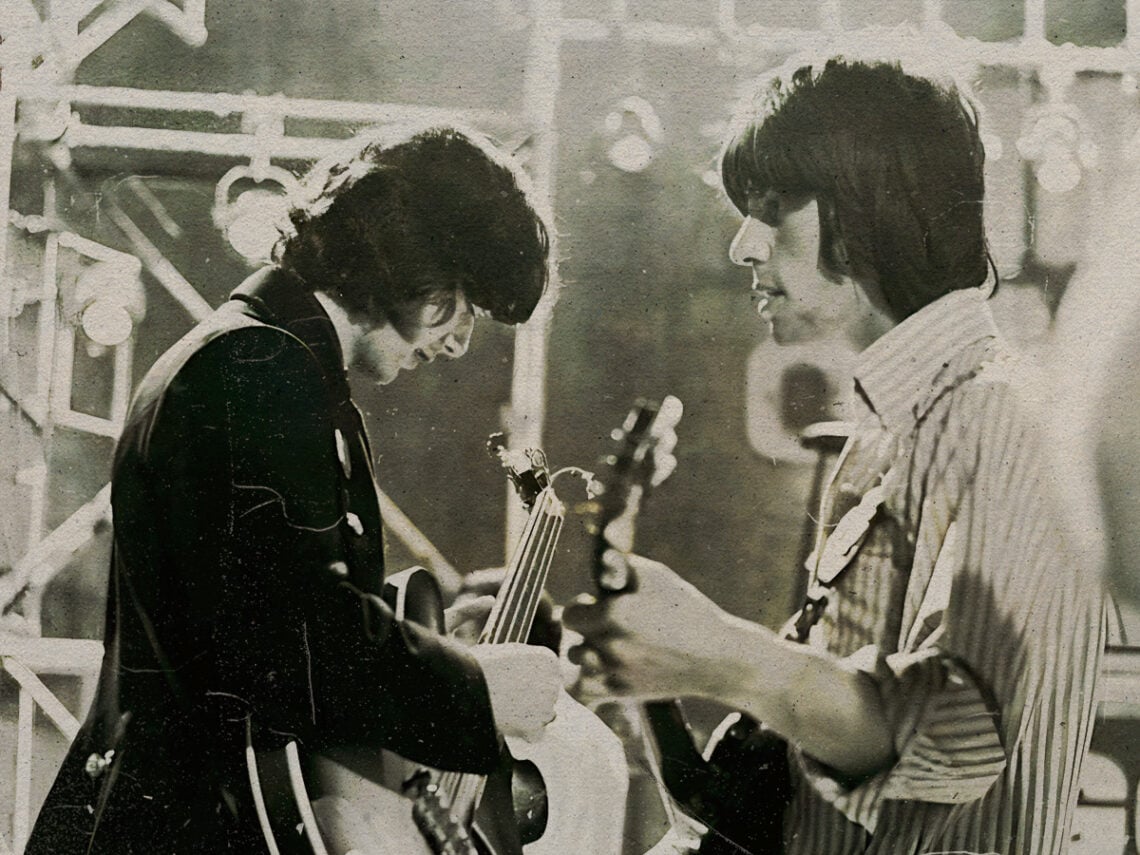The origins of ‘Kashmir’ lay in the hands of Jimmy Page. The legendary Led Zeppelin guitarist had already been experimenting with alternate tunings by the time the band reached the mid-1970s. Tracks like ‘The Rain Song’ and ‘Bon-Yr-Aur Stomp’ utilised unique tunings in their guitar parts, but Page had established a favoritism toward a specific tuning that he had used in his guitar instrumentals ‘White Summer’ and ‘Black Mountain Side’.
With an acoustic guitar already tuned to D-A-D-G-A-D (from the lowest string to the highest string), Page was messing around with a track called ‘Swan Song’ when he stumbled on the riff for what would become ‘Kashmir’. Over the years, Page told a similar variation of the story to whoever was curious.
“It originated from playing around on a tuning that I had been using quite a bit,” Page told The Edge and Jack White in the documentary film It Might Get Loud. “They call is ‘D-A-D-G-A-D’. It’s pretty similar to a sitar tuning, actually. I’d been playing on this quite a lot, and it just so happened that I had this song called ‘Swan Song’, believe it or not. It was all these intricate guitar parts and at the very end of it, I had this thing.”
Page then proceeds to play the main riff to ‘Kashmir’. The tape ended on that riff, and once Led Zeppelin reconvened, it was the end bit of ‘Swan Song’ that caught their attention. “We were doing some rehearsals – we were making an album, actually, with Led Zeppelin – John Bonham was there. The others, I don’t actually know where they were. They weren’t at the house, Headley Grange. I said, ‘I’ve got this riff.’ [We] turned it ’round, starting with the first bit first, and he lays on the rhythm on it.”
Once he arrived, Robert Plant was taken aback by what Page had constructed. “It was an amazing piece of music to write to, and an incredible challenge for me,” Page explained in a 1995 interview. “Because of the time signature, the whole deal of the song is…not grandiose, but powerful. It required some kind of epithet, or abstract lyrical setting about the whole idea of life being an adventure and being a series of illuminated moments. But everything is not what you see. It was quite a task, because I couldn’t sing it. It was like the song was bigger than me.”
Page continued to layer different riffs and motifs until the final composition of ‘Kashmir’ was complete. His trusty 1963 Danelectro guitar became his weapon of choice for the song, not least of all because it could hold the D-A-D-G-A-D tuning relatively well without requiring constant readjustments. Page nearly always played ‘Kashmir’ on the Danelectro, but when he sat down with the BBC in 1989, he proudly showed off how the song came together on an acoustic guitar.
Watch Page play ‘Kashmir’ on an acoustic guitar down below.

